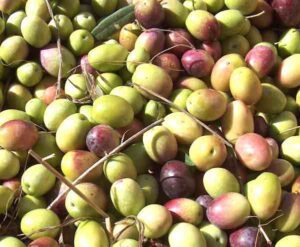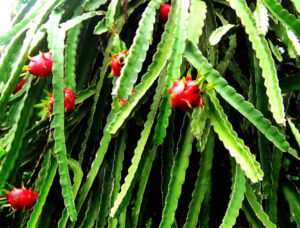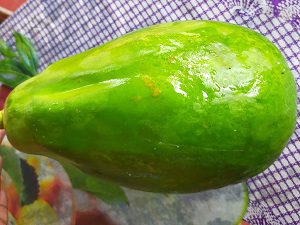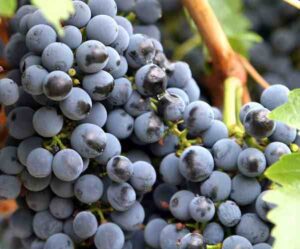Commercial raspberry farming is a very common and popular business in many countries around the world. It is a very profitable business and commercial raspberry production can be a great way for generating good income.
Raspberries are actually cultivated for the fresh fruit and also for commercial processing into individually quick frozen fruit, juice, puree or also as dried fruit used in variety of culinary products. Raspberry is actually the edible fruit of a multitude of plant species in the genus Rubus of the rose family (most of which are in the subgenus Idaeobatus. And the name ‘Raspberry’ also applies to these plants themselves.
Raspberries are perennial with woody stems. What distinguishes the raspberry from its blackberry relatives is whether or not the torus (receptacle or stem) “picks with” (i.e., stays with) the fruit. When picking a blackberry fruit, the torus stays with the fruit. With a raspberry, the torus remains on the plant, leaving a hollow core in the raspberry fruit. [1]
Various types of raspberries are available and commercial raspberry farming can be done from hardiness zones 3 to 9. All cultivars of raspberries have perennial roots, but many do not have perennial shoots. In fact, most raspberries have shoots that are biennial, which means shoots grow in the first growing season and fruits grow on those shoots during the second growing season. The flowers can be a major nectar source for honeybees and other pollinators.
The plants are vigorous and can be locally invasive. They propagate using basal shoots or suckers. And these shoots or suckers extend underground and develop roots and individual plants. They can sucker new canes some distance from the main plant. For this behavior, raspberries spread well, and can take over gardens if left unchecked. The plants will root readily in moist soil conditions.
Total worldwide production of raspberries was 822,493 tonnes in the year of 2019, with Russia as the leading producer, supplying 21% of the world total. Other major producers of raspberries are Mexico and Serbia. However, commercial raspberry farming is a very easy, simple, popular and profitable business. You can start this business and make good profits even if you are a beginner.
Raspberry Nutrition
Raspberries are very nutritious and very healthy. Raw raspberries are 1% protein, 1% fat 12% carbohydrates and 86% water. A 100 gram raspberry serving supply 53 calories and 6.5 grams of dietary fiber.
Raspberries are a rich source (20% or more of the Daily Value, DV) of vitamin C (32% DV), manganese (32% DV) and dietary fiber (26% DV), but otherwise have low content of micronutrients. Raspberries are a low-glycemic index food, with total sugar content of only 4% and no starch.
Health Benefits of Raspberry
As you can see, raspberries are very nutritious. So, consuming raspberries on a regular basis has numerous health benefits. Here we are trying to describe the top health benefits of consuming raspberries.
- Raspberries are highly nutritious and packed with nutrients. It’s a low calorie fruit and contain several vitamins and minerals.
- These fruits are great source of fiber and vitamin C.
- Raspberries are very high in antioxidants. And you probably know, antioxidants are plant compounds that protect against cell damages. And fruits with high antioxidans may help to reduce the risk of certain chronic diseases.
- Raspberries are a great source of high fiber and tannin content. And all these can help to control blood sugar.
- According to healthline ‘raspberries contain beneficial compounds that may combat various cancers, including those of the colon, breast and liver. However, studies in humans are needed.’
- Raspberries are rich in dietary fiber. And high dietary fiber helps to improve immunity and digestive health.
- Raspberries are high in nutrients but lower in carbohydrates. So, consuming raspberries can help you if you want to lose weight.
- These amazing fruits may also help to reduce arthritis risk and decrease the signs of aging.
Advantages of Raspberry Farming Business
Starting commercial raspberry farming is really very easy and simple. You can start this business even if you are a beginner.
And commercial raspberry farming is a great way for making high profits. However, here we are trying to describe the top advantages of raspberry farming business.
- Starting commercial raspberry farming is very easy and simple, even the beginners can also start this business. This is possibly the most important advantage of raspberry farming business.
- The raspberry plants are very hardy and grow easily.
- The plants require less caring and the caring process is also very easy.
- Both demand and value of raspberry are high in both local and international market.
- Many products are prepared from raspberry. You can even enjoy raspberries in off-season if you preserve raspberries by drying.
- Many people are already doing this business commercially for making money. So, you don’t have to worry much about it.
- Marketing raspberries is very easy. Because this fruits already have very good demand and value in the market.
- Commercial raspberry farming is a very profitable business. So, it can be a great employment source for the people (especially the educated unemployed youth).
- Production costs are relatively less as compared to other crop farming business. But the returns are much higher.
- As you can see above, raspberries are highly nutritious and there are numerous health benefits of consuming raspberries.
- You can enjoy fresh raspberries if you start your own production.
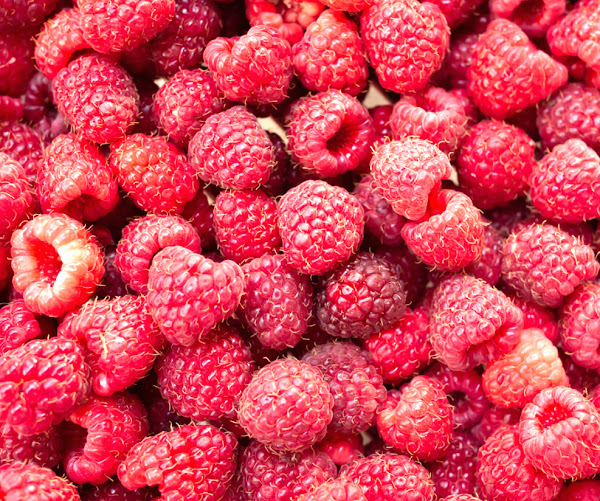
How to Start Raspberry Farming
Starting raspberry farming commercially is relatively easy and simple. The plants grow rapidly, so the beginners can also start this business. Although, we recommend having training or practical knowledge from an experienced farmer in your area. Having practical knowledge will help you to make good profits. Here we are trying to describe more information about starting and operating a successful raspberry farming business from planting, caring to harvesting and marketing.
Site Selection
Raspberry plants thrives best in rich soils from sandy loam to silt with good water-drainage. Avoiding heavy clay soils with poor drainage will be better. The plants generally prefer and grow well pH between 6.0 and 7.0. Add lime to the soil if it is acidic.
Prepare the Soil
Preparing the land perfectly is very important for getting better production. Good draining system is a must for commercial raspberry farming business. Give couple of ploughings to make the soil pulverized. Add as much organic fertilizers as you can while preparing the soil. Remove the weeds from previous crops prior to the plantation of raspberry plants.
Climate Requirement For Raspberry Farming
Commercial raspberry farming can be done in a wide range of climatic conditions. But these plants thrive best in cooler climates. The plants can also tolerate some shade, but grow best in full sun. Most of the raspberry varieties can thrive best in regions with cool summers and mild winters.
Best Time For Raspberry Cultivation
Generally, the raspberry seedlings are grown in nursery containers. And then they are transplanted to the main field after the frost conditions are vanished. Plant the seedlings one inch deeper than they grown in nursery.
Choose a Variety
Raspberries are an important commercial fruit crop which are widely grown in all temperate regions of the world. And there are numerous varieties or cultivars of raspberries available. There are ‘summer-bearers’ and ‘ever-bearer’ types of raspberries available. Generally, summer-bearers bear one crop per season that too in summertime. Where as ever-bearers bear 2 crops yearly. One in summer and another one in fall. Some common and popular raspberry varieties which are grown worldwide are ever-bearing red raspberries, purple raspberries, black raspberries, summer red raspberries and golden raspberries.
Propagation
The raspberry plant generally propagate using basal shoots/suckers. The suckers extend underground shoots that develop roots and individual plants. They can sucker new canes some distance from the main plant. Raspberries are often propagated using cuttings, and will root readily in moist soil conditions.
Purchase Plants
You can purchase raspberry plants from any of your nearest nursery. You can also consider collecting the plants from your relative or friends.
Planting
Generally, one year old seedling of raspberry is good for transplanting in the main field (when stem length is about 20 to 30 cm). Planting distance/spacing can vary from place to place. But generally, planting spacing followed in commercial raspberry farming is 60 cm in a row and 2.75 m aisle. Generally, it takes 15 to 18 stems per meter.
Caring
The raspberry plants are very strong and hardy and require less caring and other management. Although, taking additional caring will help the plants to grow well and produce more. Here we are trying to describe more information about caring the raspberry plants.
Fertilizing: Raspberry plants grow well in soft soils which is rich in organic contents. And annual application of fertilizers is very beneficial for better growth of the plants. Contact with an expert in your area or contact your local horticulture department.
Watering: Application of irrigation depends on the soil type and weather conditions. Raspberry crop requires frequent irrigation in drought regions. And ensure enough irrigation after harvesting of the crop.
Mulching: Mulching is very important for commercial raspberry farming business. Mulching helps to retain moisture into the soil and also helps to control weeds. Use organic materials for mulching your raspberry field.
Controlling Weeds: Weeds consume nutrients from the soil. So, controlling weeds is also important. Manual weeding is very effective for raspberry plants.
Pruning: Old, dead floricanes should be removed in late summer. Prune out the floricanes after picking all the fruits from the plant.
Pests & Diseases
Like many other commercial crops, the raspberry plants are also susceptible to some common pests and diseases. And these pests and diseases drastically affect the growth of the plants and crop yield. Common pests and diseases of the raspberry plants are phytophthora root rt, verticillium wilt, anthracnose, powdery mildew, aphids, spider mites, root weevils and leaf-roller larvae. Contact with a local expert or contact your local horticulture department or any agriculture university within your area.
Harvesting
Harvesting the fruits on time is very important, as these fruits are highly perishable. The raspberry fruits can be harvested daily. And you can market your fruits immediately after harvesting.
Yield
It’s very tough to tell the exact number as it depends on numerous factors. Yield depends on soil type, variety and overall farm management practices. On an average 3-4 kg/60 linear cm can be obtained from second year crop.
Marketing
This is the most important part of commercial raspberry farming business. Because you won’t be able to make high profits if you can’t sell your products easily. You can target your local market first. You can also market your products in other forms like puree and frozen can be exported to international markets.
These are the common steps and ways for starting and operating a successful raspberry farming business. Hope this guide has helped you! Good luck and may God bless you!


